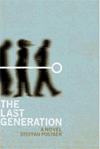Has the American idea of work gotten mushy or do we just have better things to do?
June 7, 2010

The “Lonely Man” working late…
Ken Kurson wrote a fine piece in Esquire magazine’s June issue about, plainly and simply, work. Oh, the story had other themes but what I took from it was that work as an operating principle in our lives has gone to seed and, moreover, during economic crisis when we need a work ethic the most, we, as a society, have become indifferent about one, even apathetic. Too many years of entitlement have caused us to atrophy. Instead of digging in to that great American idea known as working we hang on to the notion of saving. Saving is warm and fuzzy, like inside a nest. Working means leaving the nest. Something most of us would prefer putting off until tomorrow.
If I’m reading Kurson correctly -and I might not be- saving alone won’t save us. Politically packaged hopefulness by our government will not solve 10% unemployment. Long-term jobs cannot be handed out like apples. Careers are made, not supplied.
Yet Kurson’s beef is not with our new government. Nor does he fault the old one. Other articles in the magazine do. But not Kurson. He doesn’t mention political parties, or their promises. He is trying for something deeper. I believe he’s suggesting we lack ambition. Success has become a bad word (my interpretation), synonymous with fat cats and greed. Ambition is tethered to albatross like Ronald Reagan and Ayn Rand.
But Kurson provides living examples, less famous, less flawed. Guys like Andrew Goetting, who invented something called the Slouchback, an inflatable chair perfect for dorm rooms and the parlor. It’s arguably a silly invention, something the world doesn’t truly need. But instead of reviling Goetting for creating another plastic space waster, Kurson admires the young man for his vision.
Vision. Now there’s a word we need to bring back. While “Hope” gets men elected to President, “Vision” changes the world. Vision is an ideal almost always followed by action. Ron Popeil had vision. Lee Iacocca had vision. Leo Burnett had vision. Yes, they were all marketers but they made something too: devices, cars, an advertising agency.
At its best, advertising had vision. We showed the world how it could and should be. We espoused the “new and improved.” We celebrated success on both sides of the cash register. Not anymore. Advertising has become a bad word. Like ambition. Many say it is going extinct. Good riddance.
I’m culpable. “We make you want what you don’t need,” admonishes the header to my blog. Advertising, I declare, is a carrier for sin: greed, lust, envy and sloth. Like Capitalism and jingoism and a slew of other “isms.”
Take workaholism. Instead of celebrating the man or woman preparing for a presentation on Sunday afternoon, society calls him or her a workaholic. As Kurson aptly points out: “Of all the gooey new-age inanities, the one I hate the most is ‘No man dies wishing he’d spent more time at the office.’”
I’ve used that very quote dozens of times, mostly when talking to myself, trying to change my will. Wanting to be a better husband and father, I’ve tried to create devils in the workplace. As a result, it seems I have one foot in the office and the other at home, serving neither too well.
Leo Burnett knew better. He celebrated such a worker, calling him the “Lonely Man.” He imagined a copywriter busting her ass in the wee hours until striking gold, or the account executive toiling over an account -not selflessly but selfishly, because he wanted to get ahead. He had ambition. Mr. Burnett saw great beauty in that. And so did most of us… once upon a time.
Please submit your work to the Rogues Gallery!





 The Happy Soul Industry
The Happy Soul Industry The Last Generation
The Last Generation
Very nice post.
First, there is a vast amount of people out there who are comfortable with mediocrity or less. They’ve always been around. And those people are going to continue to pull down the “vision” people to their level. (“Thus Spoke Zarathustra” by Nietzsche beautifully addresses this phenomenon.)
I like the term “vision people.”
Ayn Rand fully admitted that her “vision” does not work that well in a world where nepotism and cronyism takes precedence over meritocracy. She wrote about the way the world “should” be, not the way it is.
The people pursuing a “vision” have been callously taken advantage of for a really long time by upper management, in a lot of industries. They’ve been pursuing that elusive carrot, which is always pulled away at the last minute.
They worked twice as hard as anyone else for not much more pay, got their ideas continuously watered-down or killed for no reason, and likely got laid off in 2008 or had their opportunities to do great work reduced even further.
If some of these “vision” people slide back to mediocrity for a time, I think that is natural. They’re probably re-evaluating what is important to them, and discovering better ways to achieve. They’re going to emerge, stronger than before, and infused with a lot more healthy skepticism about the people they’re working for.
By the way, Ayn Rand was really not impressed with Ronald Reagan and criticized him for tethering government and religion.
I do not see why we cannot have both – saving AND earning. Not everyone has an option to go out and crank out another piece for a magazine or invent a product – for some, clipping out coupons is the ‘penny saved’.
I would not also call writing a piece for an Esquire (when you are a talented person with an inclination for writing)”…struggle and jihad…” as put by Ken Kurson. As a liberal arts graduate myself I’d save such descriptions for menial jobs/jobs you are overqualified yet you are showing up everyday to pay bills etc.
As for the issue of the work/family life balance: I feel you (as a mother of two; one of them being not even one month old) BUT we cannot compare past days to the current situation.
Leo Burnett was not tied to the office w/internet and Blackberry; we did not have women participating in the workforce in the numbers that we have today and to some extend, we did not experience ‘foodie revolution’ that requires esp. Esquire readers to cook full organic meals after coming from their ‘shift’ at work.
Madison-
I recall thinking the same thing at Kurson’s line about “struggle and jihad.” Bit much, that.
Thank you for reading and commenting,
Steff
Celebrate the man preparing for a presentation on a Sunday afternoon? Why? In our industry we often find ourselves working on weekends because the decision makers can’t make up their minds–irony intended. Maybe we need another focus group? Or a campaign that’s a bit more overt? I know a lot of senior management ad folks who love to hang around the office because they have shitty marriages. And they like to drag everyone else into their “it’s all about the work” mentality. If you’re not working at Crispin, Wieden, Goodby or a few other select places, trust me it’s not all about the work–it’s about the politics and the money.
Shitty marriages? In the late 90’s I honestly thought certain people stayed late for the high speed Internet.
But I do agree with Kurson that lost in all the new age hooey about ‘time well spent’ is the idea of a hard day’s work.
Well put. Personally, I’ll do what I need to do to get the job done well, be it 80 hours a week or 40.
I also question why some still equate being “in the office” with “working” and “out of the office” with “not working.” Feels like some falling back on a bean-counting mentality, because they don’t want to evaluate the quality of the work or the characteristics of the individual.
I would agree with Kurson’s premise IF he’d honestly said ‘some of us will have to work hard in unfulfilling jobs; work is at time just that, a four letter word..”
However, he chooses to illustrate his point with the exact New Age BS he seems to abhor: with examples of people who try to make a living by doing what they are good/ they like; in other words turn a hobby into a money generating project.
WHICH stands in opposition to what he tried to present: WORK is struggle; work is hard. Actually the product’s tagline seems to underline what Kurson seems to find wrong with the young workforce of today:
“Why sit up straight when you can SlouchBack?” Why work hard when you can just chill?’
Good analysis, Madison, and I love the way you incorporated the SlouchBack’s tag line into your argument. Bravo!
That’s an excellent point, Madison — many of us will have to toil along unfulfilled, in jobs that demean us or are just plain hard. Every time I get a check for something I’ve written, or from my real job (making tv commercials), I thank G-d that I don’t have to dig or lift or cut or assemble anything for a living. That’s real work, and I very much appreciate the difference. I guess I’d defend myself by noting that there’s a bunch of stuff I didn’t include — at 800 words, there’s always something awesome to say that I didn’t, somewhere deeper to go that I couldn’t. But your point is well-taken — inventing gadgets is hardly the only illustration of the broader point I was making. Thanks for the thoughtful responses.
Ken-
So pleased you saw fit to engage in this discussion. An honor when author of source material shows up here. Did I interpret your piece correctly? I wasn’t sure.
Indeed you did, sir. And I was delighted to see my point upheld in your column by none other than the great Leo Burnett. It would appear from the loving way you describe him in your bio, your own father, as well. It’s good to work. It’s good to pour yourself into something. Not just for the benefit of “the agency.” And not just for yourself. But as I said in the article and as you allude to here, for the benefit of those who depend on you.
Ummm…every time a “tv commercial” from a Washington political consultancy runs, Leo Burnett spins in his grave.
Gene-
I’m thinking he was speaking about us not him. I could be wrong…
Overall, what an interesting topic to discuss..
I remain optimistic about how this new workforce will be eventually evaluated – it still might be ‘greatest generation’ in SOME regard…
I am also not concerned how much exercise Leo Burnett gets in his grave; as a man who probably subscribed to the saying ‘I will rest when I am dead’ he is probably unmoved by any transgressions in advertising/current world
Thought of Ken’s article when watching today’s episode of Colbert Report w/ Mark Frauenfelder – a guy who’s just TOO perfect of an example of thriftiness that has been pushed too far ( and yet he does come up with ideas for new ‘products’)
for an interview w/Mark, start viewing at 15:55
http://www.colbertnation.com/full-episodes/tue-june-8-2010-mark-frauenfelder
if you are generous you can call him an Edison’s cousin…
here’s his book: http://tinyurl.com/2c5aksn